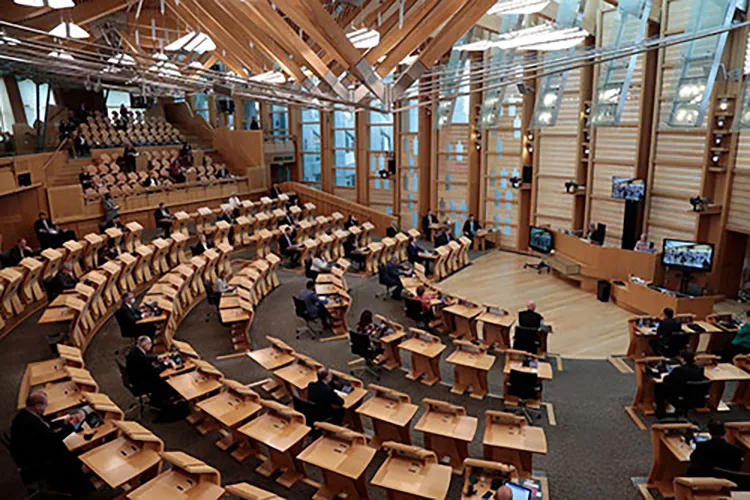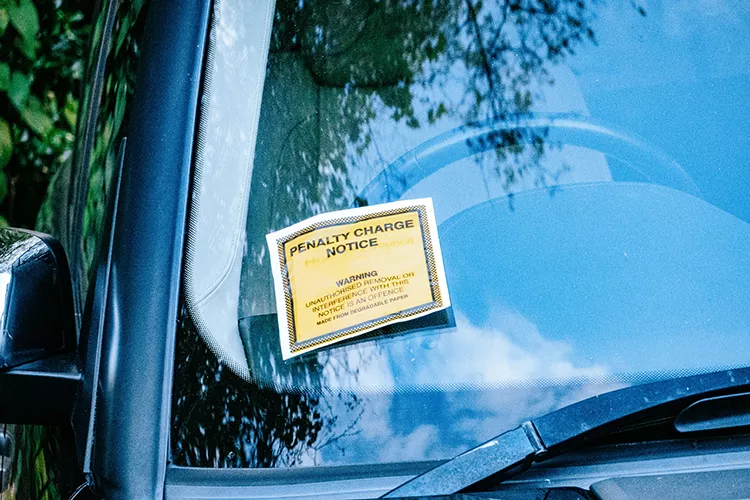
Plans to create a new East Lothian constituency for the Scottish Parliament and call it ‘Lothian Eastern’ have been described as ‘dumb’ and ‘just bad English.’
Boundaries Scotland revealed revised proposals to create an additional seat for future Scottish Parliament elections last week, which would see the East Lothian towns of Musselburgh, Tranent and neighbouring village Elphinstone merged with part of the east of Edinburgh.
And they scrapped plans to leave the remainder of the county seat called East Lothian, instead renaming it Lothian Eastern.
A meeting of East Lothian Councillors this week condemned the proposals with one Tranent councillor accusing the boundary commission of ‘throwing their toys out of the pram’ after they were forced back to the drawing board.
Colin McGinn told the meeting: “Tranent and Elphinstone are an integral part of East Lothian and they should remain together as part of an East Lothian constituency, of that I have no doubt.”
Original proposals from Boundaries Scotland, which is the name for the Boundaries Commission for Scotland, had been to add Prestonpans into the current Midlothian North and Musselburgh constituency and leave the remainder of the county seat as East Lothian.
However, following a public hearing in December that plan was scrapped.
Councillor Fiona Dugdale brought a motion to council asking the leader to write to the commission objecting to the plans to merge Musselburgh and Tranent and Elphinstone into a new seat and rename East Lothian.
She said: “From what I have seen and heard people are both shocked and disappointed, as am I. I believe the redrawing of constituencies to meet the numbers quota must take heed of the history and ties and the sense of belonging within our communities.”
Councillor Lachlan Bruce told the meeting: “Something I agree on is the name Lothian Eastern is just a bit dumb, to be honest.
“It seems to make us just a part of the Lothians rather than a place with our own identity and our own communities. It is also a terrible use of the English language.”
Councillor Bruce suggested one option could be to ‘twin’ Midlothian and East Lothian to create three constituencies of a similar size within the two counties.
He said: “They would be on the smaller end of the quotas but it would align us with a similar area at a time when we are seeing growth.
“Midlothian is a lot like us and our communities much more so than anything to do with the city.”
Council leader Norman Hampshire agreed with opposing the changes.
He said: “We need to make a challenge here, we did when the first proposal came out trying to put Prestonpans into Musselburgh and Midlothian North with a bit of Edinburgh.
“Now they have taken Tranent out and joined it with a massive bit of Edinburgh, there are 26,000 people in the east Edinburgh seat and 32,000 in the East Lothian part of it.
“The MSP will be dealing with the massive City of Edinburgh Council and East Lothian Council and it is just not compatible. There is a way to do it with Midlothian and East Lothian and having maybe three MSPs dealing with that area rather than joining us in with Edinburgh. It is not a good match for people of Musselburgh or Tranent.”
Councillors agreed unanimously to instruct the council leader to write to the commission objecting to the changes and calling for a rethink.

A consultation has opened seeking the views of Borderers on parking and parking enforcement specifically in town centres across the region.
Scottish Borders Council is keen to gauge public opinion as its officers examine the possibility of taking over responsibility for the enforcement of on-street parking regulations in the region from Police Scotland.
Known as Decriminalised Parking Enforcement (DPE), it enables a local authority to enforce its own parking policies, including the issuing of Penalty Charge Notices (PCNs) to motorists breaching parking controls in specified areas.
By taking part in this consultation it will help the council get a better understanding of the public’s opinion on decriminalising parking in the Scottish Borders.
The consultation is open until 31 May and can be accessed at HERE.
Midlothian, Edinburgh and East Lothian decriminalised parking a number of years ago.

The proposed BESS at Pittlesheugh Farm.
Concern over the loss of arable farmland was one of the issues raised during public consultation over a proposed Berwickshire energy system, it has emerged.
A planning bid for the construction and operation of a 340MV Battery Energy Storage System (BESS) on land at Pittlesheugh Farm, 1.75km north of Eccles and 8.5km west of Coldstream, has been submitted to Scottish Borders Council, although ultimate say on the application is within the jurisdiction of Scottish Ministers.
The proposed development would be temporary in nature with consent being sought for an operational period of 40 years, after which the site would be decommissioned and restored to its current state.
The proposed BESS would accommodate up to 94 groups of ten battery storage cabinets, 100 Power Conversion Units (PCUs) along with ancillary structures.
A report with the application says: “The proposal would not generate electrical power and, as such, does not represent a form of electrical generation infrastructure. Rather it would draw electrical power from the electricity grid and then store this and release it back on to the grid, as required.”
During consultation last year concern was raised over the loss of farmland.
The report states: “The construction of the project would lead to the loss of 9.51 hectares of arable farmland.
“This would, however, be temporary as the applicant is seeking a time limited consent for the project of up to 40 years after which the site would be restored to agriculture.
“In agreement with the Local Planning Authority a suitable bond will be put in place to provide funding for reinstating the land.”
The developer is local landowner Will Ramsay, whose family lives at Pittlesheugh Farm.
Mr Ramsay is involved in the local community, sitting on the committee of the Berwickshire Civic Society, as chair of Berwickshire Races, and as chair of local charity Admiral Ramsay Museum. Previously, he initiated and chaired a charitable community pub committee, to save The Plough at Leitholm.